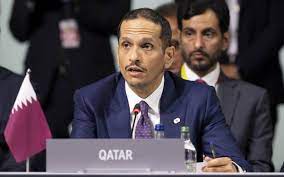
Trump Threatens 100% Tariff on China Over ‘Aggressive’ Trade Moves
By Trend Brio News Published: October 11, 2025 | Updated: US President Donald Trump has announced plans to impose an additional 100% tariff on all Chinese imports, escalating tensions between Washington and Beijing in what could become the sharpest trade confrontation in years. In a post on his Truth Social platform late Friday, Trump accused China of taking an “extraordinarily aggressive position” on trade, saying Beijing had issued an “extremely hostile letter to the world” and introduced sweeping export controls on key goods, including rare earth materials vital to global manufacturing. “Starting November 1st, 2025 — or sooner, depending on China’s actions — the United States will impose a tariff of 100% on China, over and above any existing tariffs,” Trump wrote. “It is impossible to believe China would have taken such an action, but they have, and the rest is history.” The move marks a major escalation in the long-running US-China trade dispute, sparking renewed fears for global economic stability. The White House said the new tariffs come in direct response to Beijing’s restrictions on rare earth exports, which China claims are necessary for “national security.” The US, however, views them as economic retaliation. Trump also announced plans to impose US export controls on “all critical software” bound for China, intensifying the technology standoff between the two nations. On Friday, Trump suggested he may cancel a planned meeting with Chinese President Xi Jinping, originally set to take place during his visit to South Korea later this month for the Asia-Pacific Economic Cooperation (APEC) summit. “I was to meet President Xi in two weeks at APEC in South Korea, but now there seems no reason to do so,” Trump posted. The trip is expected to include stops in Malaysia, Japan, and South Korea, with the US president hinting at “other countermeasures under serious consideration.” The announcement sent Wall Street tumbling, with the S&P 500 falling 2.7% on Friday — its worst single-day drop since April — as investors feared a renewed trade war between the world’s two largest economies. Beijing has not yet issued an official response, but analysts warn that a 100% tariff could disrupt global supply chains and increase costs for US consumers. Relations between the US and China had shown tentative signs of stabilization in recent months, but Trump’s announcement signals a fresh rupture between “the world’s biggest factory” and “its largest consumer.”








